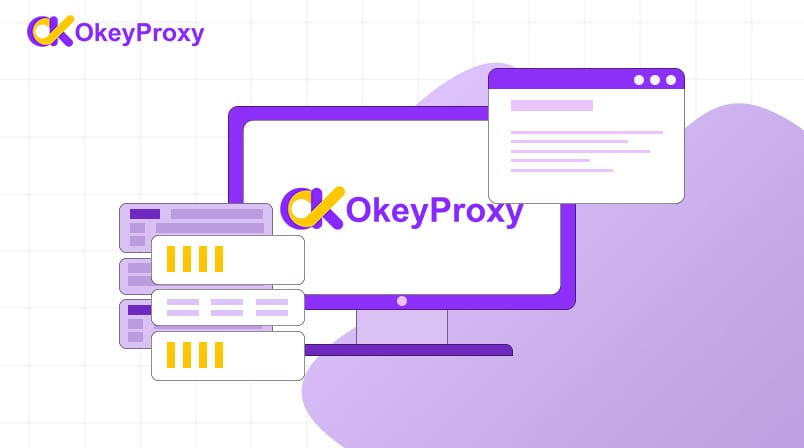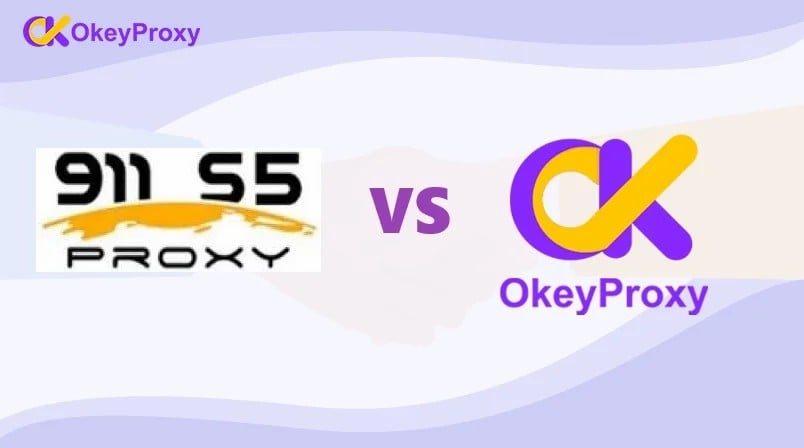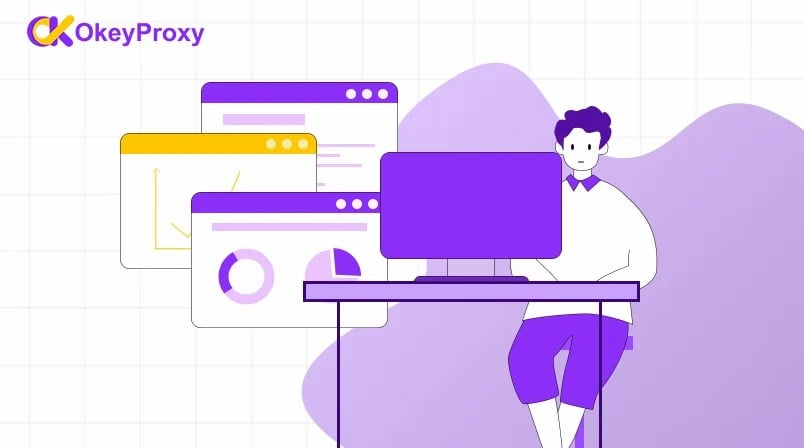什么是数据中心IP代理?

什么是数据中心IP代理?它又有哪些优点和缺点。立即阅读由专家撰写的文章,并在今后做出明智的决定。
根据谁拥有他们使用的IP范围的所有者来分类代理时,基本上有3种类型的代理——数据中心、住宅和移动IP代理。本文的重点是数据中心IP代理。您将要学习数据中心代理的利弊。
了解它们的弱点和优势很重要,这样您才可以购买它们以在它们适用的领域中使用。因为数据中心代理存在一些缺陷,这使得它们在某些领域不适用。在我们研究它们的优缺点之前,让我们先看一下它们是什么以及它们如何工作。
什么是数据中心IP代理?
数据中心代理是使用数据中心拥有和管理的IP的代理,俗称机房IP代理。与住宅代理通过使用ISP拥有和分配的IP地址的设备路由请求的情况不同,数据中心代理利用自己的IP地址,这使他们可以更好地控制流量的安全性和速度。
数据中心IP代理如何工作?
数据中心代理模型由于其简单性而用于解释代理的工作原理。在大多数情况下,不需要通过代理服务器本身以外的其他设备重新路由客户端的请求。
当您使用数据中心代理向网站发送请求时,该请求将通过数据中心代理服务器。然后,服务器会剥离您的IP地址,并用另一个IP地址替换它,然后再将请求发送到网站。处理完请求后,响应将发送到代理,然后将其转发给您。
通常,由于您的IP地址已从请求中删除,因此网站不会知道该请求源自您,它认为该请求来自代理服务器。但是,由于大多数复杂的网站都可以检测到代理服务器中的IP,因此会被拒绝访问其服务。
下面我们看一下数据中心代理的优缺点。
数据中心IP代理的优点
尽管一些互联网营销人员会不愿提及数据中心代理,但由于它们相对于其他类型的代理具有某些优势,因此有些人仍愿意使用它们。其中一些优势将在下面讨论。
•便宜又实惠
人们使用数据中心代理的主要原因是它们的非常便宜。您可以仅用一美元购买一些专用的私人代理,并且可以使用一个月。
共享数据中心代理甚至更便宜,而IPv6数据中心代理则是市场上最便宜的代理。您可能会想知道几乎所有数据中心代理都具有无限带宽。它们通常还允许您创建大量线程。
但是,它们限制了可以同时使用其代理的设备数量。基于以上原因,大多数预算较小的小型互联网营销商都使用它们来降低成本。
•极快
我知道有一个方面,住宅代理比不上数据中心代理—速度。如果速度对于您的应用而言是非常重要的因素,那么我建议您不要使用住宅代理,应该选择数据中心代理。
它们中的大多数都托管在高性能服务器上,这些服务器可以为您提供高达1 Gbps的Internet速度。这与住宅代理相反。住宅和移动代理很慢,因为它们通过其他设备路由您的请求。
•易获取
开发用于构建数据中心代理的基础结构并不需要太多。这是因为开发数据中心代理不需要Internet服务提供商。这使得数据中心代理非常容易获得。
从市场上可用的数据中心代理提供商的数量可以看出这一点。与销售数据中心代理不同,进入销售住宅代理的障碍更高,因此,市场上只有少数提供商。反过来,这使得数据中心代理更便宜。
数据中心IP代理的缺点
从上面可以看到,数据中心代理很便宜,非常快并且很容易获得。但是为什么不受欢迎呢?这是由于它们的某些缺点。让我们来看看下面最突出的。
•与复杂的网站不兼容
大多数复杂的网站都不允许在其网站上使用代理。因此,它们具有适当的系统来限制对通过代理服务器传递请求的访问。这些网站可以轻松检测到数据中心代理,因为它们的IP范围不是ISP而是数据中心所有。
由于它们易于检测,与其他类型的代理相比,它们更容易被拦截。在垃圾邮件的关联性方面,数据中心代理也比住宅代理更高。因此数据中心代理与许多流行的网站不兼容。
•地理位置定位受限
为了使代理服务为特定位置提供代理,它们需要在该位置具有代理服务器。这使得数据中心代理服务很难在许多位置提供代理。
这与住宅代理相反,在住宅代理中,他们使用对等网络为没有服务器的位置提供代理。这就是为什么您看到大多数数据中心代理在诸如美国和欧洲的其他一些地方都只有有限位置的代理的原因。
结论
与其他类型的代理一样,数据中心代理也有其优点和缺点。尽管有些人将它视为低端的代理,但事实并非如此。它们只是用于不同目的的不同类型的代理。当您需要高速或预算很低时,数据中心IP代理可能非常有用。另外,您只需要知道它们与某些严格的网站不兼容即可。



















